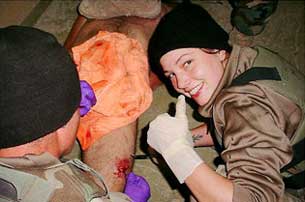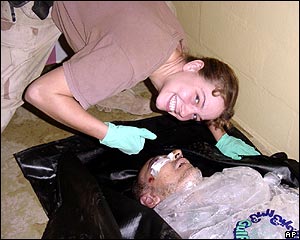Making Torture Normal
After Abu Ghraib: now what?

Some argue that at least the US is now more open and less hypocritical about its behaviour towards terrorist suspects. To this, one should reply: "If US representatives mean only this, why are they telling us? Why don't they silently go on doing it, as they did it until now?" What is proper to human speech is the gap between the enunciated content and its act of enunciation. Imagine a couple who have a tacit agreement that they can have discreet extramarital affairs; if, all of a sudden, the husband openly tells his wife about an affair, she would have good reason to wonder why he was telling her. The act of publicly revealing something is never neutral; it affects the reported content itself.

The same goes for the US's recent admission that it is using torture. When we hear people such as Dick Cheney making statements about the necessity of torture, we should ask ourselves why he has decided to make a public statement about it. The question to be raised is: what is there in this statement that made the speaker decide to enunciate it? This is ...[the] ...real problem: not the content itself but the fact that we are being told openly about it ... And that is a sad indication of a deep change in our ethical and political standards.
Slavoj Zizek, Tuesday January 10, 2006, The Guardian
And the always-excellent Jodi at I Cite has recently posted that Bush Advisor Says President Has Legal Power to Torture Children: "John Yoo publicly argued there is no law that could prevent the President from ordering the torture of a child of a suspect in custody – including by crushing that child’s testicles ...".
I think we now all know what's next ...



0 Comments:
Post a Comment
<< Home